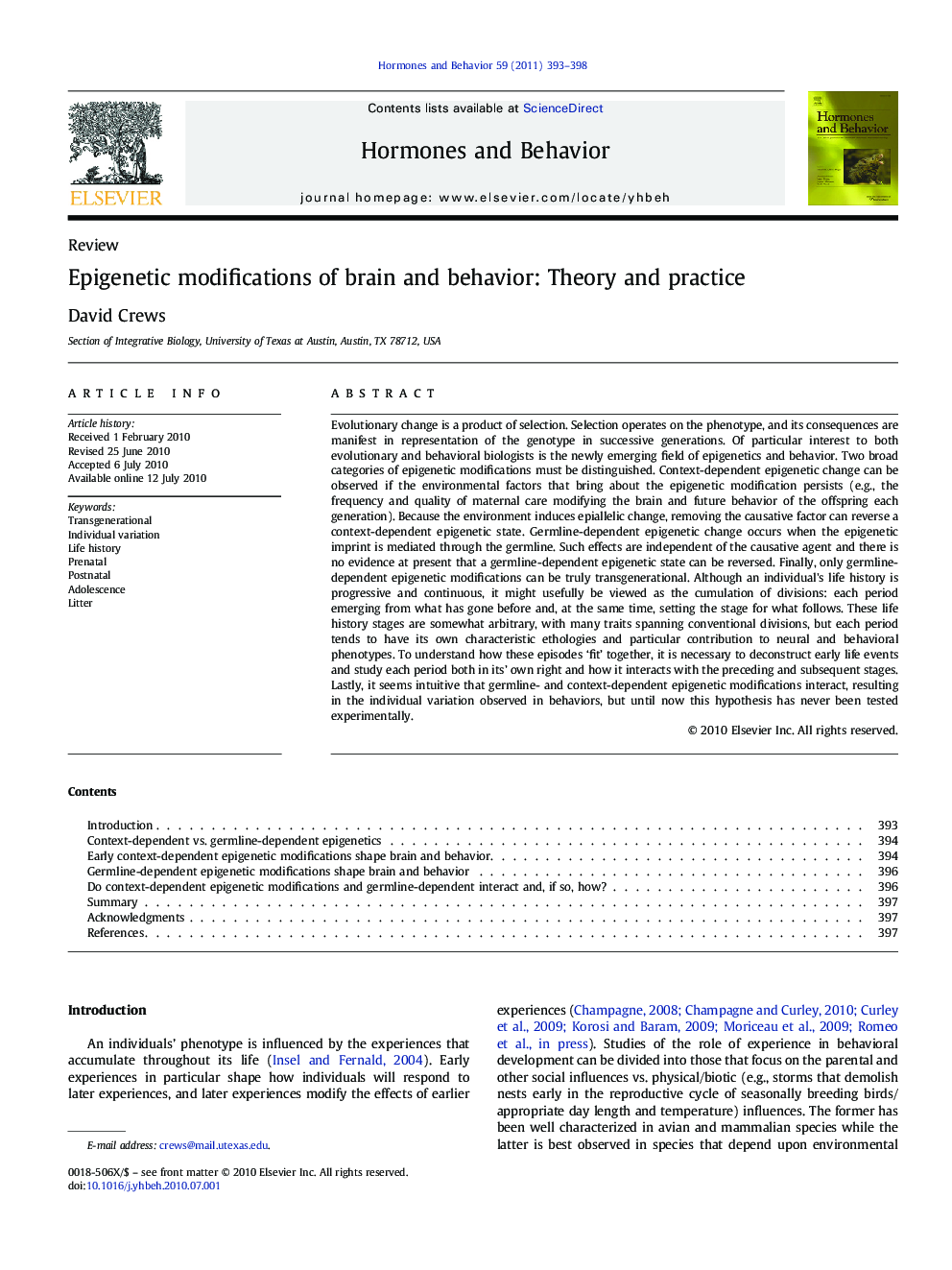| کد مقاله | کد نشریه | سال انتشار | مقاله انگلیسی | نسخه تمام متن |
|---|---|---|---|---|
| 323211 | 540526 | 2011 | 6 صفحه PDF | دانلود رایگان |

Evolutionary change is a product of selection. Selection operates on the phenotype, and its consequences are manifest in representation of the genotype in successive generations. Of particular interest to both evolutionary and behavioral biologists is the newly emerging field of epigenetics and behavior. Two broad categories of epigenetic modifications must be distinguished. Context-dependent epigenetic change can be observed if the environmental factors that bring about the epigenetic modification persists (e.g., the frequency and quality of maternal care modifying the brain and future behavior of the offspring each generation). Because the environment induces epiallelic change, removing the causative factor can reverse a context-dependent epigenetic state. Germline-dependent epigenetic change occurs when the epigenetic imprint is mediated through the germline. Such effects are independent of the causative agent and there is no evidence at present that a germline-dependent epigenetic state can be reversed. Finally, only germline-dependent epigenetic modifications can be truly transgenerational. Although an individual's life history is progressive and continuous, it might usefully be viewed as the cumulation of divisions: each period emerging from what has gone before and, at the same time, setting the stage for what follows. These life history stages are somewhat arbitrary, with many traits spanning conventional divisions, but each period tends to have its own characteristic ethologies and particular contribution to neural and behavioral phenotypes. To understand how these episodes ‘fit’ together, it is necessary to deconstruct early life events and study each period both in its’ own right and how it interacts with the preceding and subsequent stages. Lastly, it seems intuitive that germline- and context-dependent epigenetic modifications interact, resulting in the individual variation observed in behaviors, but until now this hypothesis has never been tested experimentally.
Journal: Hormones and Behavior - Volume 59, Issue 3, March 2011, Pages 393–398